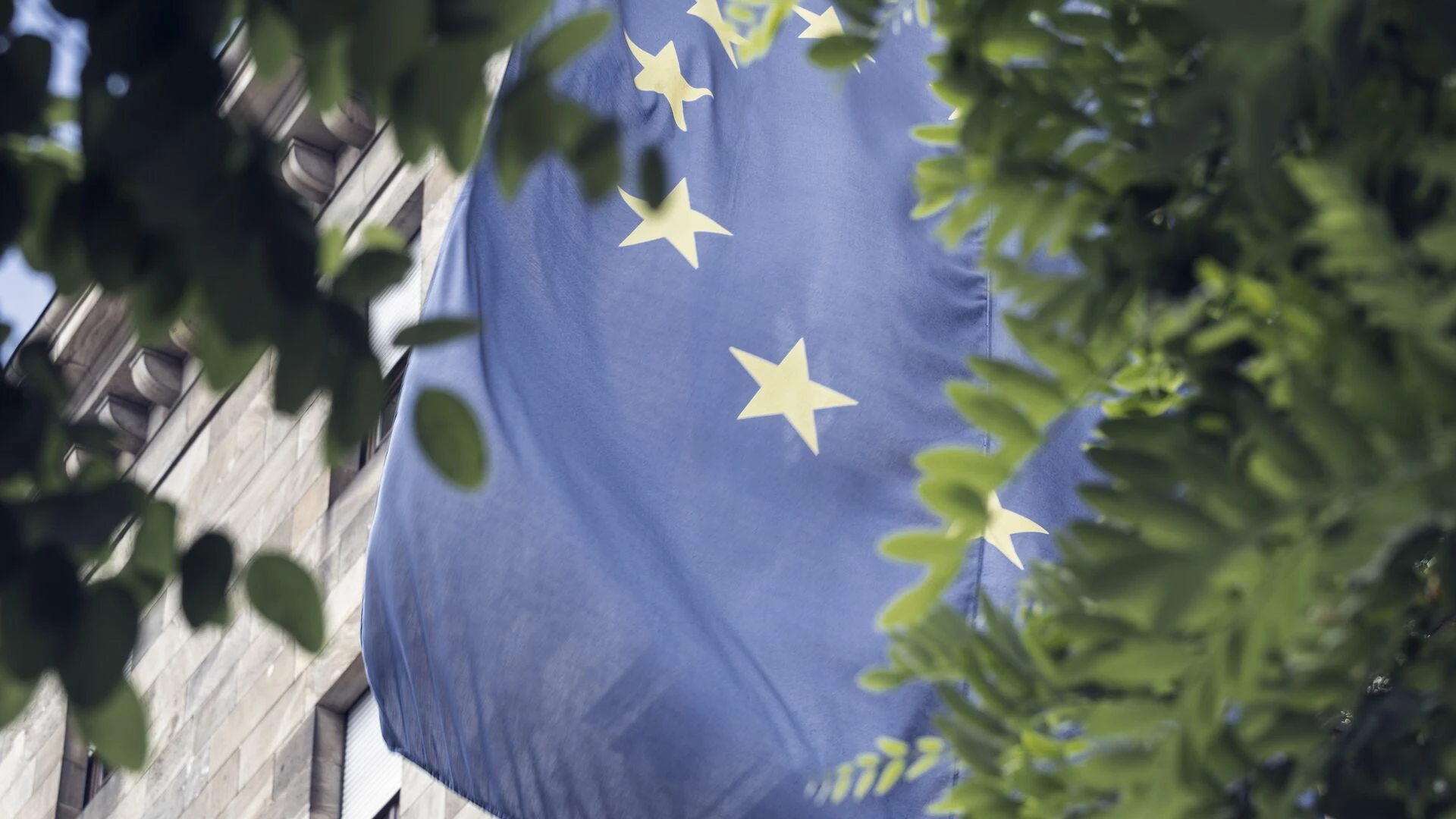
- Name:
- Helge J. Pedersen
- Title:
- Nordea Group Chief Economist
Helge J Pedersen
Economic and political problems are currently piling up in both Germany and France. But perhaps Trump's re-election will be a catalyst for major pan-European reforms.

2024 is coming to an end, and we can look back on a year that must be considered satisfactory based on most economic parameters. At least when it comes to the Danish economy.
Not many other western countries can keep up with the expansion of the Danish economy, which in the first three quarters of the year achieved GDP growth of almost 4% compared to the year-earlier quarters, and employment sets a record month after month. In addition, inflation has come under control, and Denmark has the EU’s most impressive public finances as well as a huge surplus in trade with other countries. This has led to the unusual situation that Danish government bond yields are currently lower than their German equivalents, which have always served as a benchmark for the rest of Europe.
But another reason is that something is currently very wrong in our large neighbouring country to the south. The German economy has stagnated since the pandemic, and the coalition government has recently disintegrated, so the Germans have to go to the polls prematurely. Probably on 23 February 2025. The political mess is among other things due to an internal dispute over whether the government should boost the economy through a more expansionary fiscal policy and let go of the so-called “debt brake”, which in short means that Germany must not have a structural government budget deficit exceeding 0.35% of GDP.
The problem of an excessively tight fiscal policy is, however, not an issue in France, which has not had a government budget surplus for 50 years and where debt has exceeded 110% of GDP. The consequence is that France is now paying more than Greece to borrow money on the financial markets for 10 years, but there is still no prospect of an imminent recovery. The Barnier government, which has held a tenuous mandate since it was formed in September, has tried to push through a tight budget for 2025 bypassing parliament. The action has been met with a vote of no confidence from the left wing. Marine Le Pen, whose Rassemblement National party has served as a lifeline for the government and who risks both imprisonment and exclusion from French politics for five years for cheating with EU funds, voted in favour of the no-confidence motion and the government collapsed. France's parliament is deeply divided and it now risks a form of political paralysis for quite some time, since according to the constitution, new elections cannot be held until July 2025 at the earliest.
With Germany and France on their knees at the same time, the economic outlook in the Euro area for the coming quarters is weak; political uncertainty will weigh on businesses as well as consumers and the export sector is reeling from Russia’s continued war in Ukraine, low growth in China and the prospect of the new US administration imposing new tariffs on imports from Europe.
With Germany and France on their knees at the same time, the economic outlook in the Euro area for the coming quarters is weak.
In the US, the situation is quite different. Reminiscent of the aftermath of the 2016 election, Donald Trump’s very business-friendly economic policy with tax cuts for businesses and households, deregulation and a thorough streamlining of the public sector has sent all short-term economic indicators north. It is thus likely that the US will run at full speed in the coming quarters.
But who knows, perhaps the re-election of Donald Trump as president of the US will be the decisive wake-up call for Europe to improve the overall conditions for businesses, promote research and development, ensure competitive energy prices and lay the foundation for a well-functioning capital markets union.
The latter may prove crucial in order to secure the financing of the huge investments required for Europe to compete with the US and China in future. The much-debated Draghi report states that the annual requirement will be around EUR 750-800bn (double the size of Denmark’s GDP) if the mission is to succeed. And the report also states that it will probably be necessary to have an active industrial policy and that the costs must at least be partly financed through common funds under the auspices of the EU.
Time will tell whether the project is realistic. It requires the full support of all EU countries. However, more and more now seem to be realising the gravity of the situation – as illustrated by the fact that Prime Minister Mette Frederiksen and the Danish government have made a U-turn in the past week and now also support the proposal. And even though many will interpret this as the political union being snuck in through the back door, Denmark – with its impressive economic balances and global top positions in the green transition, transport and pharmaceutical industries – is probably still a very good country to be based in.


Sustainability
Amid geopolitical tensions and fractured global cooperation, Nordic companies are not retreating from their climate ambitions. Our Equities ESG Research team’s annual review shows stronger commitments and measurable progress on emissions reductions.
Read more
Sector insights
As Europe shifts towards strategic autonomy in critical resources, Nordic companies are uniquely positioned to lead. Learn how Nordic companies stand to gain in this new era of managed openness and resource security.
Read more
Open banking
The financial industry is right now in the middle of a paradigm shift as real-time payments become the norm rather than the exception. At the heart of this transformation are banking APIs (application programming interfaces) that enable instant, secure and programmable money movement.
Read more